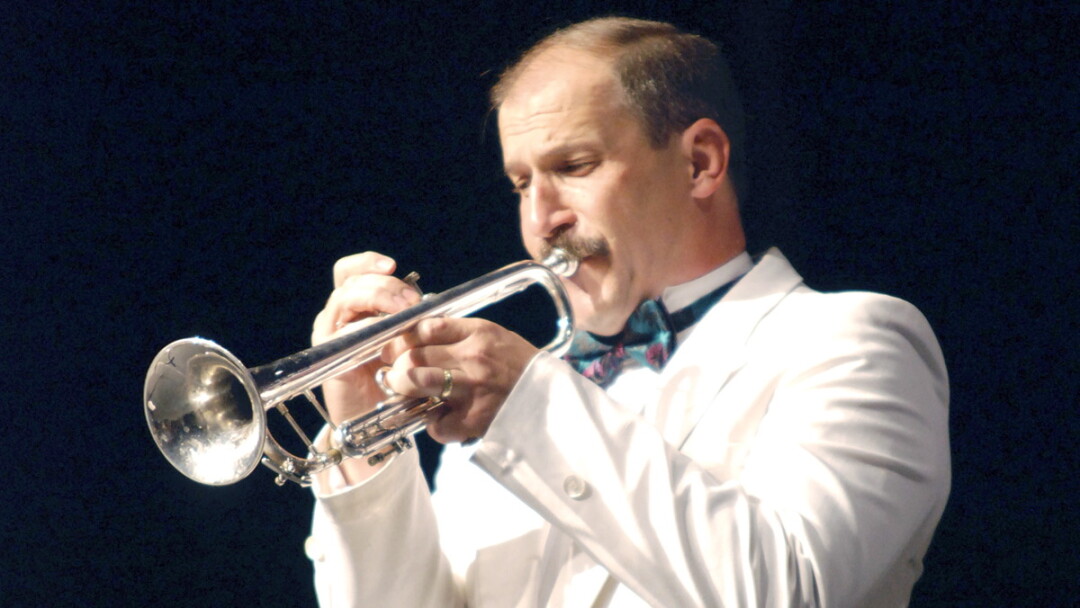Hearing Our Heritage
UWEC oral history project records musical memories

My coffee hadn’t yet hit my bloodstream. I wasn’t fully prepared for such a fountain of energy at 8 on a Monday morning, but Dr. Daniel Ott’s enthusiasm was more of a boost than even Starbucks provides. Ott clearly has a passion for what he does. In his second year as visiting assistant professor of history at UW-Eau Claire he knew he wanted to get his students involved in oral history. Oral history is of utmost importance to the preservation of the memories and people who are and were a part of our community.
However, exploring Eau Claire’s music history wasn’t Ott’s initial plan. The idea to focus a project on Eau Claire’s music scene actually came from UW-Eau Claire’s archivist, Greg Kocken.
“Music ... becomes a common language and a way to begin conversations that cross socioeconomic and cultural differences.” – Carrie Ronnander, Chippewa Valley Museum director
“Because of the impact the arts are having on Eau Claire’s growth, centering a history project around the city’s music history and its key players made sense. It was also something that students and the community can easily identify with,” Ott shares. “I also think it’s important for us to think about music influences in Eau Claire beyond Justin Vernon and indie rock. Through this project, I want people to see themselves and see each other as a part of our music community. I want them to realize that they are involved and do have a part in how the music community has evolved.”
Sounds of Eau Claire involves oral history interviews converted into podcasts that have aired on Blugold Radio (99.9 FM) and are also available online. (Interview subjects have included UWEC jazz studies director Bob Baca, bluesman Howard “Guitar” Luedtke, and studio owner Evan Middlesworth.) The project is a collaboration that came together through the work of several groups and organizations, including the students and faculty of UWEC’s history department, Blugold Radio, McIntyre Library, the Chippewa Valley Museum, and narrators from the community. I had the privilege of connecting with some of the key players in this project.
Sounds of Eau Claire carries great importance because, “Music helps to draw people together, sometimes people who may not know much about each other, or who don’t share the same cultural values. Music then becomes a common language and a way to begin conversations that cross socioeconomic and cultural differences,” shares Carrie Ronnander, director of the Chippewa Valley Museum. “Knowing the history and roots of different musical traditions and experiences can make it easier to understand and appreciate the diversity within the community.”
Scott Morfitt, director of Blugold Radio, which is located on campus and broadcasts throughout the region, says this project is important to him because, “It teaches us that the passion of today was built over years of hard work. This is not something that just happened one day and people said, ‘Good gracious, we have a music scene!’ It’s an interflowing river of passion and inspiration.
“More importantly,” he adds, “we have a wealth of talent and passion in this community. … Through music, intentional community can be built which enriches the lives of the community and people they influence.”
The Sounds of Eau Claire project will continue this fall, and – ideally – for several more years. Ott is also working on grants to create a digital exhibit to be showcased through the Chippewa Valley Museum. Similar to the Sounds of Eau Claire podcasts, the museum’s exhibit will bring together influential members of our music culture. There will be a “Sounds of Eau Claire History Harvest” to collect stories and objects which will be digitized and put online for the exhibit. Humanities experts will also take part as they talk about music history in our region. The history will delve into influences outside of indie rock. It will explore how the Hmong music tradition, Indian jazz, and squeezebox (to name a few) have also made an impact on our music scene.
As a transplant to Eau Claire, Ott hasn’t had the same exposure to Eau Claire’s music as those of us who grew up here have, but the thing that impresses him most (and one of the things he’s learned through this project) is that Eau Claire epitomizes what it means to redefine who we are as a community. “For me as an outsider,” he says, “it’s been really interesting to see how the community has reinvented itself. Whether or not this new identity of ‘Music Capital of the North’ succeeds, there is something to Eau Claire’s imagination!”
As for what the future holds for music and our city, Ronnander says: “Music is a living tradition, and it will grow and change along with our town. Preserving and sharing our music history will help make sure that the music makers of the future can build on their roots.”
To hear the podcasts created through the Sounds of Eau Claire project, visit blugoldradio.org/sounds-of-eau-claire-podcast.


















